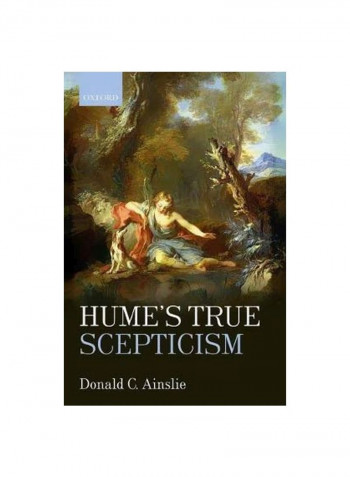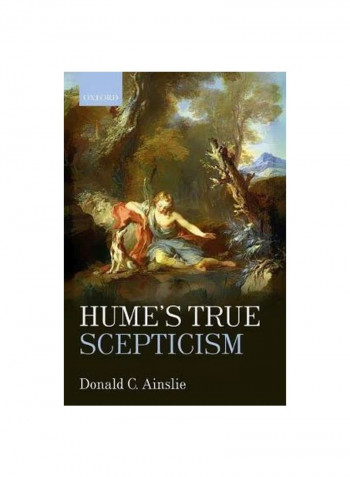Hume's True Scepticism Paperback
Recommend
Sort by
Rating
Date
Specifications
Author 1
Donald C. Ainslie
Book Description
David Hume is famous as a sceptical philosopher but the nature of his scepticism is difficult to pin down. Hume's True Scepticism provides the first sustained interpretation of Part 4 of Book 1 of Hume's Treatise, his deepest engagement with sceptical arguments. Hume notes there that, while reason shows that we ought not to believe the verdicts of reason or the senses, we do so nonetheless. Donald C. Ainslie argues that Hume uses our reactions to the sceptical arguments as evidence in favour of his model of the mind. If we were self-conscious subjects, superintending our rational and sensory beliefs, nothing should stop us from embracing the sceptical conclusions. But instead our minds are bundles of perceptions with our beliefs being generated, not by reflective assent, but by the imagination's association of ideas. We are not forced into the sceptical quagmire. Nonetheless, we can reflect and philosophy uses this capacity to question whether we should believe our instinctive rational and sensory verdicts. It turns out that we cannot answer this question because the reflective investigation of the mind interferes with the associative processes involved in reason and sensation. We thus must accept our rational and sensory capacities without being able to vindicate or undermine them philosophically. Hume's True Scepticism addresses Hume's theory of representation; his criticisms of Locke, Descartes, and other predecessors; his account of the imagination; his understanding of perceptions and sensory belief; and his bundle theory of the mind and his later rejection of it.
ISBN-13
9780198801412
Language
English
Publisher
Oxford University Press
Publication Date
30/Nov/17
Number of Pages
302
About the Author
Donald Ainslie is a Professor of Philosophy at the University of Toronto, where he also serves as Principal of University College. He is interested in all aspects of Hume's philosophy, as well as in early modern philosophy more broadly; he is the co-editor of the Cambridge Companion to Hume's Treatise. He also teaches and publishes in bioethics.
Editorial Review
Ainslie's book is of tremendous scholarly worth, being valuable both in its own right as a novel and well-defended thesis, and also more instrumentally in offering a sustained and excellent analysis of the winding pathways of Book 1 Part 4. * Hsueh Qu, British Journal for the History of Philosophy * one of the best books written on Hume in a long time . . . there's much to be learned . . . for anyone interested in the foundations of Hume's philosophical project. Indeed, Ainslie's book can also be read as developing a novel Humean view about the nature and limits of philosophy itself. So this book will be of interest, not just to Hume scholars, but to anyone who is attracted to thinking about such meta-philosophical topics in a broadly Humean way. It seems to me a must-read for anyone interested in Hume's scepticism-or, indeed, Hume's philosophy more generally. * Karl Schafer, Australasian Journal of Philosophy * this is one of the very most thought-provoking books yet written on Hume. It challenges many conventional assumptions about Hume, and gives him a new look. It is a look so different from what one is used to that I fear I may have fallen prey to some illusions both in reading Ainslie and in responding to him. I expect many rewarding re-readings and trust that these will correct my errors. Ainslie's is an indispensable contribution to the literature on Hume and on the history of the philosophy of mind and epistemology. * Frederick F. Schmitt, Notre Dame Philosophical Reviews * Donald C. Ainslie's Hume's True Scepticism presents the first book-length treatment of Book 1, Part 4 of the 1739 A Treatise of Human Nature by David Hume (1711-1776). In doing so, the volume represents an important accomplishment, and one can reasonably expect it to become required reading for those wishing to come to terms with Hume's skepticism. * International Journal for the Study of Skepticism * elebrated as the winner of the 2016 Journal of the History of Philosophy prize for best book of the year, Ainslie's volume plumbs the depth of Hume's skeptical philosophy in a way that few authors have done, and is deserving of the esteemed accolade. * Donald C. Ainslie, Metapsychology *



